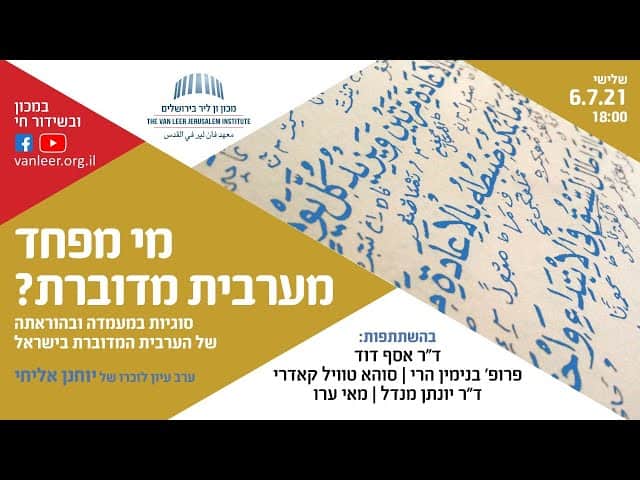Who’s Afraid of Spoken Arabic?, 06.07.21
Issues Concerning the Status and Teaching of Spoken Arabic in Israel
A panel discussion in memory of Yohanan Elihai
Traditional scholarship considers spoken Arabic, with its many dialects, as the step-sister of literary Arabic. In recent decades, however, winds of change have been blowing. The change began in the Arabic-speaking countries, with the rise in status of the spoken languages, the use of an Arabic middle language, and the multiplicity of cultural works that include spoken Arabic. This trend spread to the West, especially in progressive modern frameworks for teaching Arabic, because of the growing recognition that the classic division between the spoken language and the literary language must be challenged—because of both the connection between the registers and the wish to promote communication skills.
The panel discussion will focus on spoken Arabic in Israel, addressing the place of spoken Arabic in academic scholarship, the teaching of spoken Arabic in civilian society, the history of teaching spoken Arabic in Israel (mainly discussions from the period of the British Mandate), and the Ministry of Education’s attitude toward the teaching of spoken Arabic in the Hebrew education system.
Participants
Chair: Dr. Assaf David, The Van Leer Jerusalem Institute
Prof. Benjamin Hary, New York University (NYU); New York University in Tel Aviv
Suha Taweel-Kadry, The Jerusalem Intercultural Center; Ben-Gurion University of the Negev
Dr. Yonatan Mendel, Ben-Gurion University of the Negev; The Van Leer Jerusalem Institute
May Arow, Abraham Initiatives

